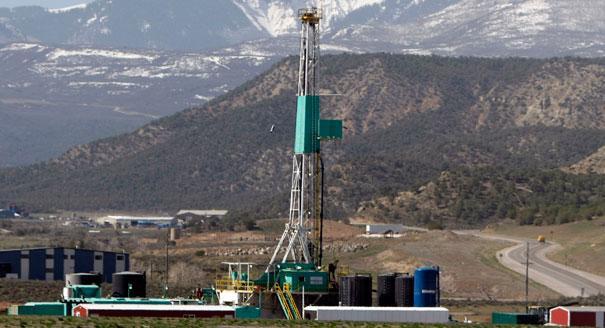It’s pretty annoying to check your wallet at the bar and see that you’ve spent your allotted amount for the night. But thanks to a recent boom in the oil and natural gas industries, Americans will soon be able to increase their discretionary budgets and maybe have a few more rounds with Jose Cuervo.
In the wake of the financial collapse of 2007, Americans are still struggling to find jobs and make ends meet. Work is hard to come by, particularly for recent college graduates, who are often forced to move back in with their parents hoping that something will turn up.
There is a massive demand for employment and that call is being answered by oil and natural gas.
The government needs to incentivize continued expansion in the oil and natural gas industries, as well as providing tax breaks for emerging sectors in the industry, such as solar,
wind and biofuel.
As of 2011, oil directly or indirectly provided one in six jobs statewide – largely in the areas surrounding the Baton Rouge Exxon Mobile refinery, and in coastal parishes such as Terrebonne and Lafourche, where extraction work on offshore rigs is commonplace, according to
dailycomet.com
Advancements in technology such as hydraulic fracturing — or fracking — and horizontal drilling and increased production in several states have added 2.1 million jobs to the U.S. economy in 2012, and will add a projected 3.3 million by 2020. Last year, the average American family earned an extra $1,200 thanks to the boom, and that number will rise to $2,000 by 2015, according to Reuters.
However, there has been a significant push back from the environmental lobby against fracking, claiming that it is harmful to both ground water and air quality.
What those lobbyists forget is that fracking is substantially cleaner and more environmentally friendly than coal, emitting much less carbon dioxide from coal-fired plants, the main driver of climate change, and sparing mountain tops the fate of removal mining.
There is just no pleasing some people.
Another side effect of this increase is that the United States is one step closer to fully exploiting its own resources and becoming energy independent, which would free us from a large amount of strategic interests in the Middle East.
At the same time, alternative energy sources have largely fallen by the wayside, suffering from inefficiency, high costs and accusations of crony capitalism, where the government plays favorites by giving millions in subsidies to politically
friendly businesses.
This was best demonstrated by the Solyndra debacle, where a solar power company went belly-up after receiving half a billion dollars in subsidies.
Under no circumstances should taxpayer funds be so grossly misused. Instead, tax credits on capital gains should be used to encourage investors to get behind entrepreneurs in alternative energy. If these forms of energy are ever found to be viable on a large scale, the emergence of a whole new market will foment competition that will drive down costs. Everyone wins.
If not, we will still have our reserves of oil shale and natural gas to provide cheap, readily available energy and well-paying jobs for years to come, and we will feel it in our favorite place: our wallets.
Ryan McGehee is a 20-year-old political
science, international studies and history junior from
Zachary, La.
Opinion: Energy boom shows need for greater expansion
September 9, 2013





